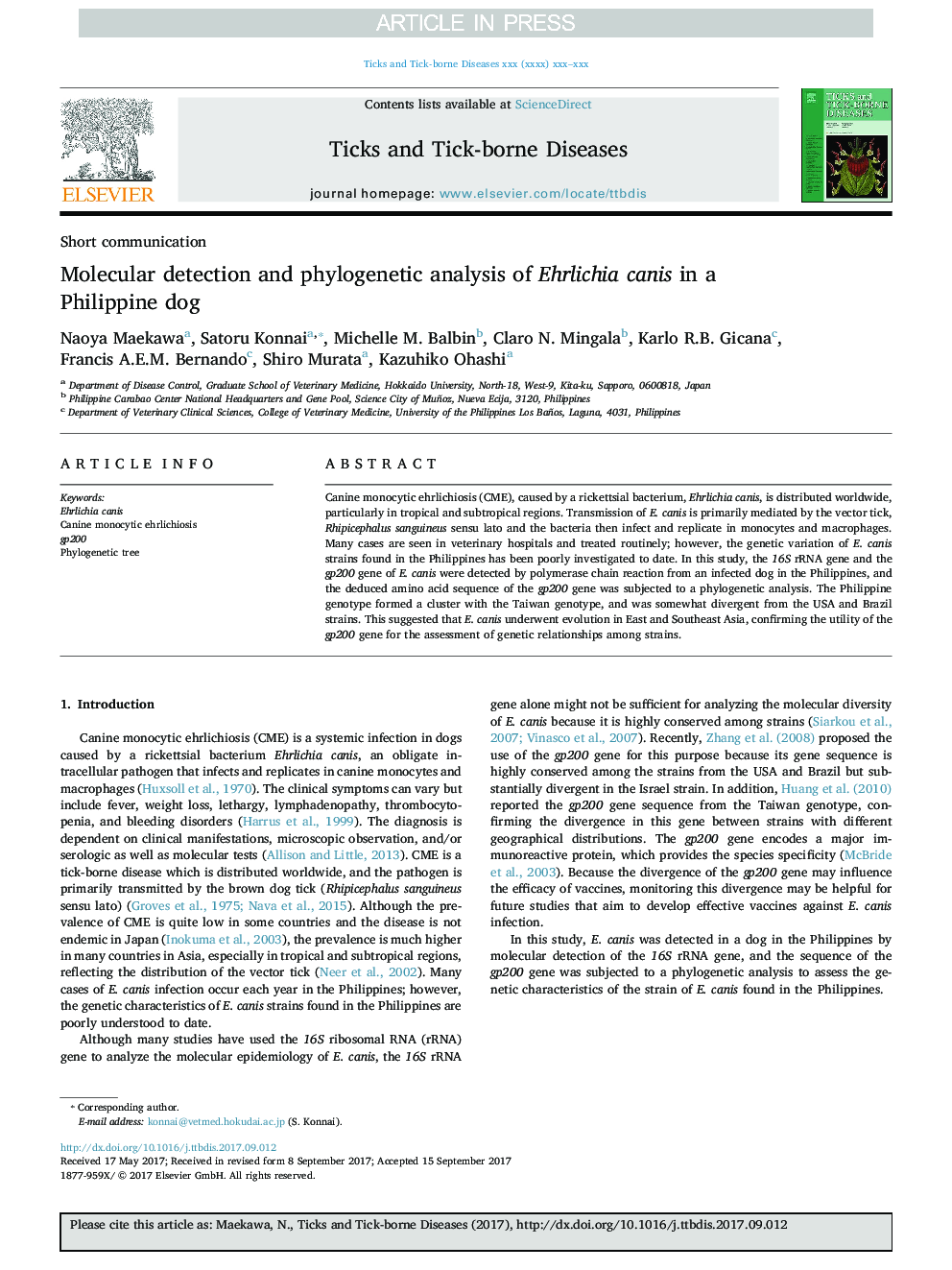| Article ID | Journal | Published Year | Pages | File Type |
|---|---|---|---|---|
| 8507460 | Ticks and Tick-borne Diseases | 2018 | 4 Pages |
Abstract
Canine monocytic ehrlichiosis (CME), caused by a rickettsial bacterium, Ehrlichia canis, is distributed worldwide, particularly in tropical and subtropical regions. Transmission of E. canis is primarily mediated by the vector tick, Rhipicephalus sanguineus sensu lato and the bacteria then infect and replicate in monocytes and macrophages. Many cases are seen in veterinary hospitals and treated routinely; however, the genetic variation of E. canis strains found in the Philippines has been poorly investigated to date. In this study, the 16S rRNA gene and the gp200 gene of E. canis were detected by polymerase chain reaction from an infected dog in the Philippines, and the deduced amino acid sequence of the gp200 gene was subjected to a phylogenetic analysis. The Philippine genotype formed a cluster with the Taiwan genotype, and was somewhat divergent from the USA and Brazil strains. This suggested that E. canis underwent evolution in East and Southeast Asia, confirming the utility of the gp200 gene for the assessment of genetic relationships among strains.
Related Topics
Life Sciences
Agricultural and Biological Sciences
Animal Science and Zoology
Authors
Naoya Maekawa, Satoru Konnai, Michelle M. Balbin, Claro N. Mingala, Karlo R.B. Gicana, Francis A.E.M. Bernando, Shiro Murata, Kazuhiko Ohashi,
